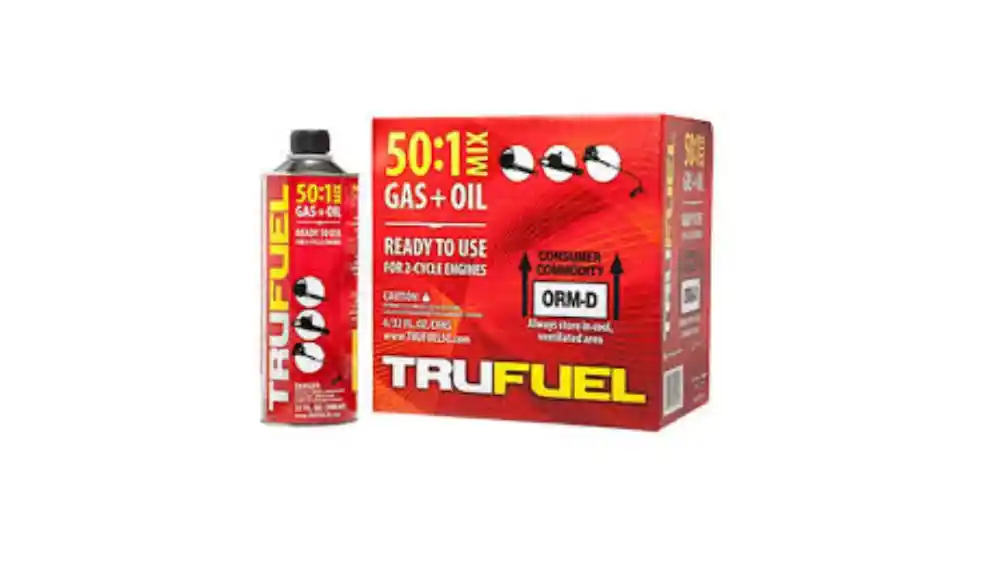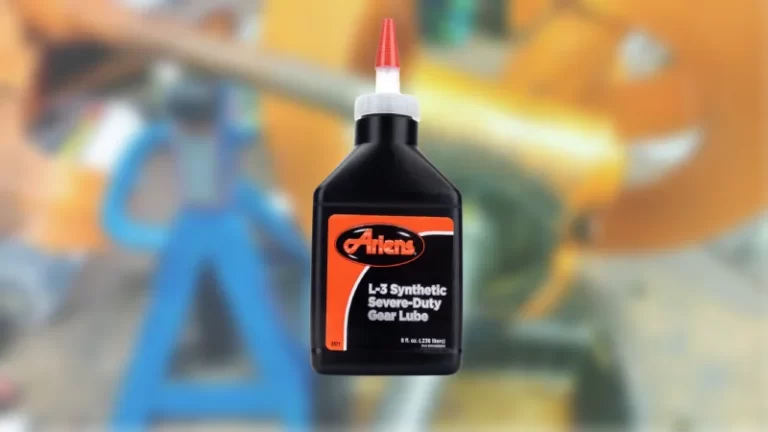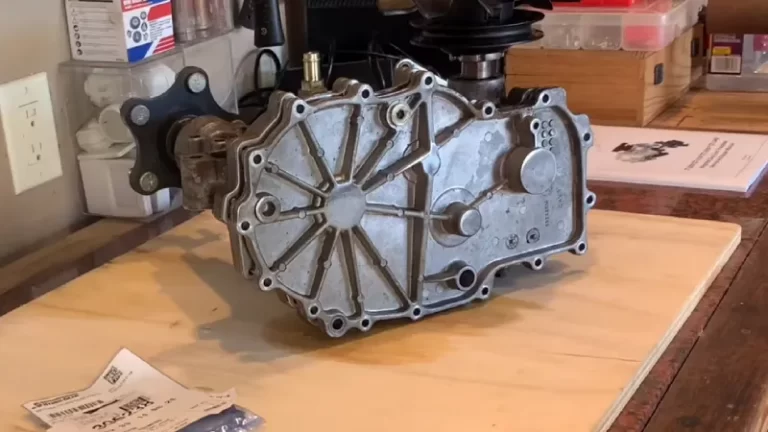TruFuel in Your Pressure Washer? The Surprising Truth You Need to Know
You pull out your pressure washer after months in storage, eager to blast away a season’s worth of grime. You fill it with fresh gas, pull the cord, and… nothing. Or maybe it sputters to life, coughing out smoke before dying again. This is a frustratingly common problem for homeowners, and the culprit is almost always the same: old, stale gasoline from the pump.
That’s when you see a can of TruFuel at the hardware store. It promises easy starts, superior performance, and long-term stability. The question immediately pops into your head: “Can I use TruFuel in my pressure washer?” The answer is a resounding yes, but with one critical detail that could save you from accidentally destroying your engine.
You'll Learn About
What Exactly Is TruFuel and Why Is It Different?
TruFuel isn’t just gasoline in a can; it’s a high-performance, engineered fuel created specifically for small engines. Its biggest advantage is what it’s missing: ethanol. The ethanol found in up to 10% of standard pump gas is notorious for attracting moisture, which leads to corrosion and gummy deposits that clog carburetors and fuel lines. This is especially problematic for equipment that sits unused for long periods.
TruFuel is precision-formulated, ethanol-free, and packed with stabilizers to keep it fresh for over two years after opening. It comes in two main versions: a 2-cycle mix with oil already added and a 4-cycle fuel for engines with a separate oil reservoir. This distinction is the most important factor when it comes to your pressure washer.
Understanding Your Pressure Washer’s Engine: The Critical Difference
The overwhelming majority of gas-powered pressure washers on the market today use a 4-stroke engine (also called a 4-cycle engine). These engines, similar to the one in your car, have a separate compartment for oil, which you check with a dipstick. The gasoline you add is for combustion only and should not have oil mixed into it.
This is the opposite of 2-stroke engines, commonly found in chainsaws and leaf blowers, which require a precise mixture of oil and gasoline to lubricate internal components. Using the wrong fuel type is not a minor mistake—it can lead to catastrophic engine failure. This is why identifying your engine type is the first and most crucial step.
The Verdict: Yes, You Can Use TruFuel—But You MUST Use the Right One
So, can you use TruFuel? Absolutely. In fact, for most homeowners, it is one of the best choices for ensuring reliability and longevity. However, you must use TruFuel 4-Cycle Fuel in your pressure washer. It provides the clean, stable, ethanol-free gasoline your engine needs to start easily and run smoothly, season after season.
Using TruFuel 4-Cycle helps prevent the most common fuel-related problems, saving you from the headache of a machine that won’t start when you need it most. It’s the perfect solution for homeowners who use their pressure washer intermittently and want to avoid costly repairs down the line.

The #1 Mistake to Avoid: The Dangers of Using 2-Cycle Fuel
The most devastating mistake you can make is accidentally grabbing a can of 2-cycle TruFuel (like a 50:1 or 40:1 mix) and pouring it into your 4-stroke pressure washer. The oil mixed into 2-cycle fuel will not properly lubricate a 4-stroke engine’s crankcase. Instead, it will burn in the combustion chamber, creating heavy smoke and fouling the spark plug.
Prolonged use of the wrong fuel will lead to significant carbon buildup, loss of power, and ultimately, severe engine damage that can be expensive to repair or even render the machine useless. The internal mechanics of a 4-stroke engine are precise, and just as you need to know what size screws for a ceiling fan box to ensure a secure installation, you must use the correct fuel to ensure a functioning engine.
How to Be Sure You Have a 4-Stroke Engine
If you’re unsure what type of engine your pressure washer has, don’t guess. The easiest way to tell is to look for two separate caps: one for gasoline (often with a gas pump symbol) and one for oil (often with an oil can symbol and a dipstick attached). If you see these, you have a 4-stroke engine.
You can also check the owner’s manual or look for labels on the engine itself. Many 4-stroke engines will have “OHV” (Overhead Valve) printed on the engine cover. Confirming your engine type is a simple check that prevents a major disaster.
TruFuel vs. Regular Pump Gas: A Head-to-Head Comparison
To make the right choice, it’s helpful to see a direct comparison between standard E10 gasoline from the pump and engineered 4-cycle fuel. This breakdown shows where each type of fuel shines and where its weaknesses lie.
| Feature | Regular Pump Gas (E10) | TruFuel 4-Cycle |
|---|---|---|
| Ethanol Content | Up to 10% | Zero Ethanol |
| Shelf Life | 30-60 days before degrading | 2+ years after opening |
| Stabilizers | None included; must be added separately | Pre-mixed with advanced stabilizers |
| Engine Performance | Good when fresh | Consistent and reliable, even after storage |
| Corrosion Risk | High, due to moisture absorption | Extremely low |
| Cost | Low per gallon | High per can |
| Best Use Case | Frequent, heavy use where fuel is consumed quickly | Intermittent use and long-term storage |
Step-by-Step Guide: How to Safely Switch to TruFuel
Making the switch to TruFuel is simple and is a great step toward better engine maintenance. Before you start washing surfaces, you should always inspect the area for any pre-existing damage. Just as you’d want to learn how to fix a soft spot in vinyl plank flooring before deep cleaning it, you should ensure your engine is ready for its new fuel.
Follow these steps to ensure a smooth transition. First, safely drain any old gasoline from the fuel tank and carburetor. Next, inspect the fuel lines for any signs of cracking or wear and replace them if necessary. Finally, fill the tank with fresh TruFuel 4-Cycle fuel, and start the engine, letting it run for a few minutes to circulate the new fuel through the system.
Long-Term Storage: The Real Superpower of TruFuel
The single greatest benefit of TruFuel is for long-term or end-of-season storage. Ethanol-blended pump gas left in a machine over the winter will almost certainly cause problems in the spring. TruFuel’s ethanol-free, stabilized formula eliminates this risk entirely.
For perfect winterization, run the pressure washer’s tank nearly empty of pump gas. Then, add a small amount of TruFuel 4-Cycle and run the engine for a few minutes. This ensures the clean, stable fuel fills the carburetor and fuel lines, protecting them from corrosion and guaranteeing an easy start next season.
Are There Any Downsides to Using TruFuel?
The most significant drawback of TruFuel is its cost. It is considerably more expensive per gallon than pump gas. For a commercial operator who uses their pressure washer daily, the cost can be difficult to justify. In that scenario, fresh pump gas with a quality fuel stabilizer is often a more economical choice.
However, for the average homeowner who might only use their machine a handful of times per year, the higher price is often a worthwhile investment. The cost of a single can of TruFuel is far less than the cost of a carburetor cleaning or engine repair bill caused by stale, ethanol-damaged fuel.
Real-World Scenarios: When Does TruFuel Make the Most Sense?
Deciding whether TruFuel is right for you often comes down to how you use your equipment. For the typical homeowner who uses their pressure washer for spring cleaning and occasional projects, TruFuel provides peace of mind and hassle-free operation. It’s also the perfect “last tank of the season” fuel for winterizing any 4-stroke engine.
Maintaining outdoor equipment requires a similar level of care and attention to detail as indoor projects. Just as you would research the proper procedures if you were concerned you might have accidentally removed asbestos popcorn ceiling, using the right fuel is a critical safety and maintenance step for your machinery. It’s an investment in reliability for when you need your equipment to work without fail.
Frequently Asked Questions (FAQs)
Navigating fuel types can be confusing, so here are quick answers to some of the most common questions about using TruFuel in your pressure washer.
Can I mix TruFuel with regular gas?
While mixing them won’t cause immediate damage, it’s not recommended. Doing so dilutes the benefits of TruFuel, re-introducing ethanol and diminishing the fuel’s stability. For best results, use TruFuel in an empty or near-empty tank.
Will using TruFuel void my pressure washer’s warranty?
No. As long as you use the correct type—TruFuel 4-Cycle for a 4-cycle engine—it will not void your warranty. In fact, TruFuel meets or exceeds the fuel requirements for all major small engine manufacturers, and its clean-burning properties can help extend engine life.
How long does an opened can of TruFuel last?
An opened can of TruFuel remains fresh and stable for up to two years. Its specially designed metal can and vapor-tight seal prevent the degradation that happens with gasoline stored in standard plastic gas cans.
Ultimately, using TruFuel 4-Cycle fuel is one of the smartest decisions a homeowner can make for their pressure washer. It eliminates the most common failure point for small engines—bad fuel—and ensures your machine is ready to go when you are. While it costs more upfront, it’s a small price to pay for reliability and the avoidance of much larger repair bills in the future.


